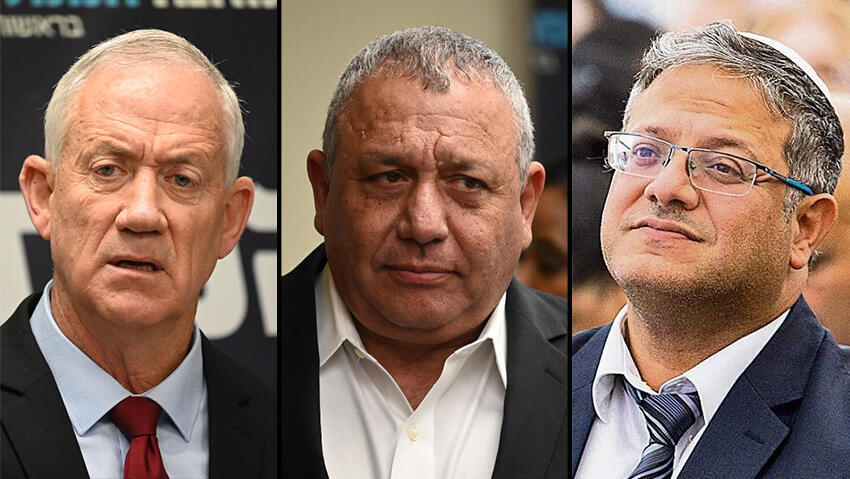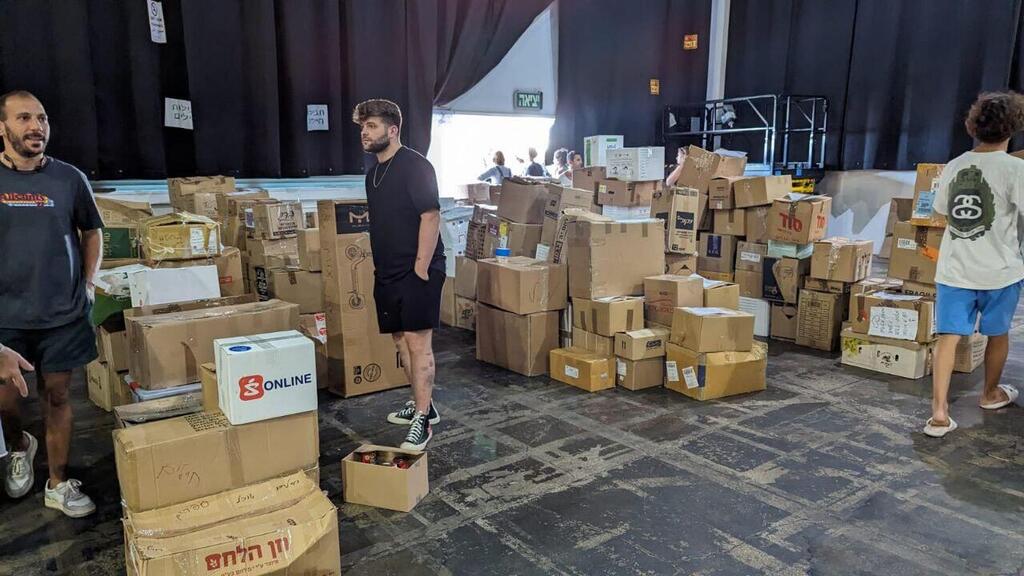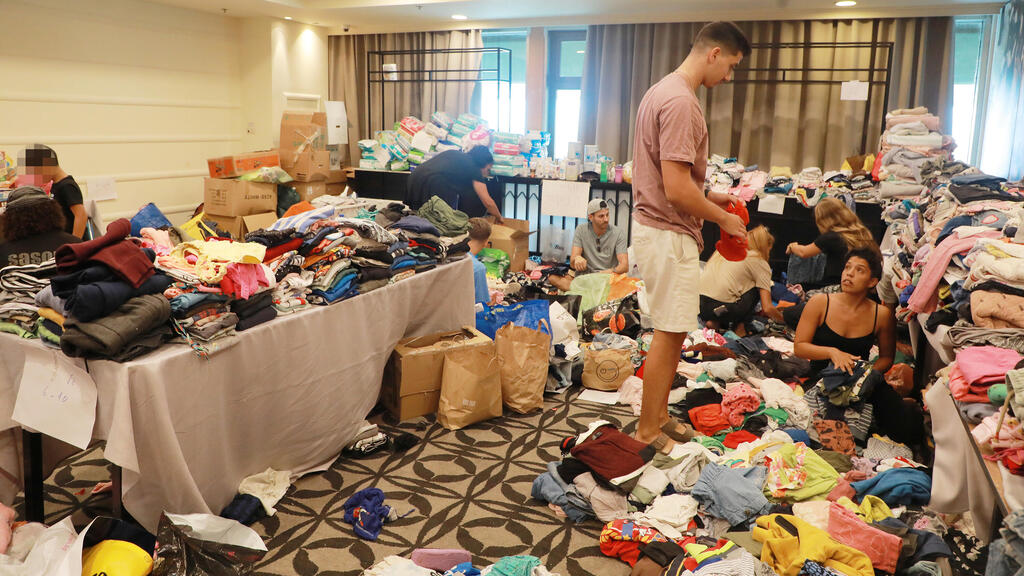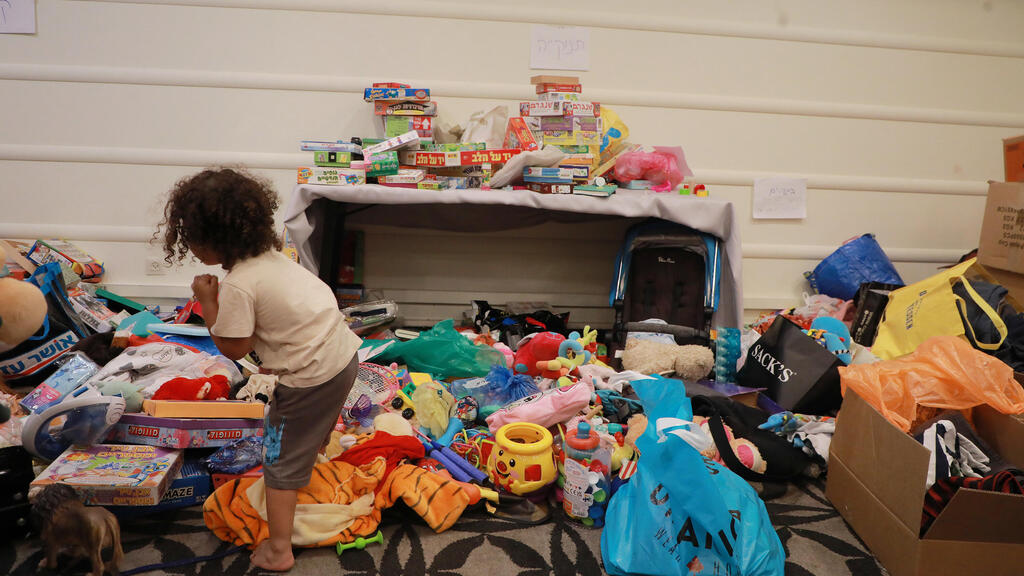Despite broad support for the establishment of a unity government by members of the ruling Likud Party and ongoing negotiations to that end, National Security Minister Itamar Ben-Gvir presented hurdles, with a statement from his office expressing no opposition to the proposal but objecting to his exclusion from the decision-making process in a limited wartime Cabinet.
Read more:
National Unity leader Benny Gantz, a former IDF chief of staff before his foray into politics, said that he would join a unity government only if such a wartime cabinet is formed and included another ex-IDF chief, Gadi Eizenkot, among its few members.
4 View gallery


Benny Gantz, Gadi Eizenkot, Itamar Ben-Gvir
(Photo: Yoav Dudkevitch, Alex Kolomoisky)
A senior Likud official stressed the critical necessity of establishing a national unity government, asserting that successful war efforts are unattainable without one, given the current political and ministerial landscape. "It is no secret that we cannot wage this war with the existing Security Cabinet in terms of the ability to make the right decisions and in terms of public support," he said.
Justice Minister Yariv Levin, speaking publicly for the first time since the onset of the war, said that a unity government was urgently needed and that he was making efforts to achieve it.
4 View gallery


Donated equipment for residents of the south, collected in Tel Aviv
(Photo: Bar Moyal)
Meanwhile, amid critiques of the government's unresponsiveness, civilians have independently addressed numerous needs of Israelis, providing psychological and logistical support, especially to residents of southern Israel. Civilian-led initiatives have emerged to compile information regarding Israelis missing since Saturday, gathering any available details about their fate.
Israelis have enlisted the help of mental health professionals to assist families evacuated from the Gaza border area, now accommodated in hotels, while others have opened their homes to those displaced by the war.
4 View gallery


Evacuated southern Israel residents sort our donated clothes in a hotel in Tel Aviv
(Photo: Dana Kopel)
The kibbutz movement in the south said in a press conference that there was an urgent need to remove the bodies of the dead and bring them to burial, and called for volunteers in that effort.
Protest movements set up to oppose the government of Benjamin Netanyahu's legislative push to overhaul the judicial system used their widespread social media presence and logistical operations to organize a drive to collect much-needed equipment including clothing, diapers, baby formula, toys blankets, toiletries and whatever else might be needed including food, for those families and for reservists who were mobilized to join fighting units in the north and in the south.
4 View gallery


A child displaced by the war plays with donated toys in a hotel in Tel Aviv
(Photo: Dana Kopel)
The Israeli public's response was swift and significant and continues unabated. The IDF has assured that all soldiers' needs will be met by the military, emphasizing that there is no need for reservists to purchase defensive gear, flashlights, or any personal equipment.

